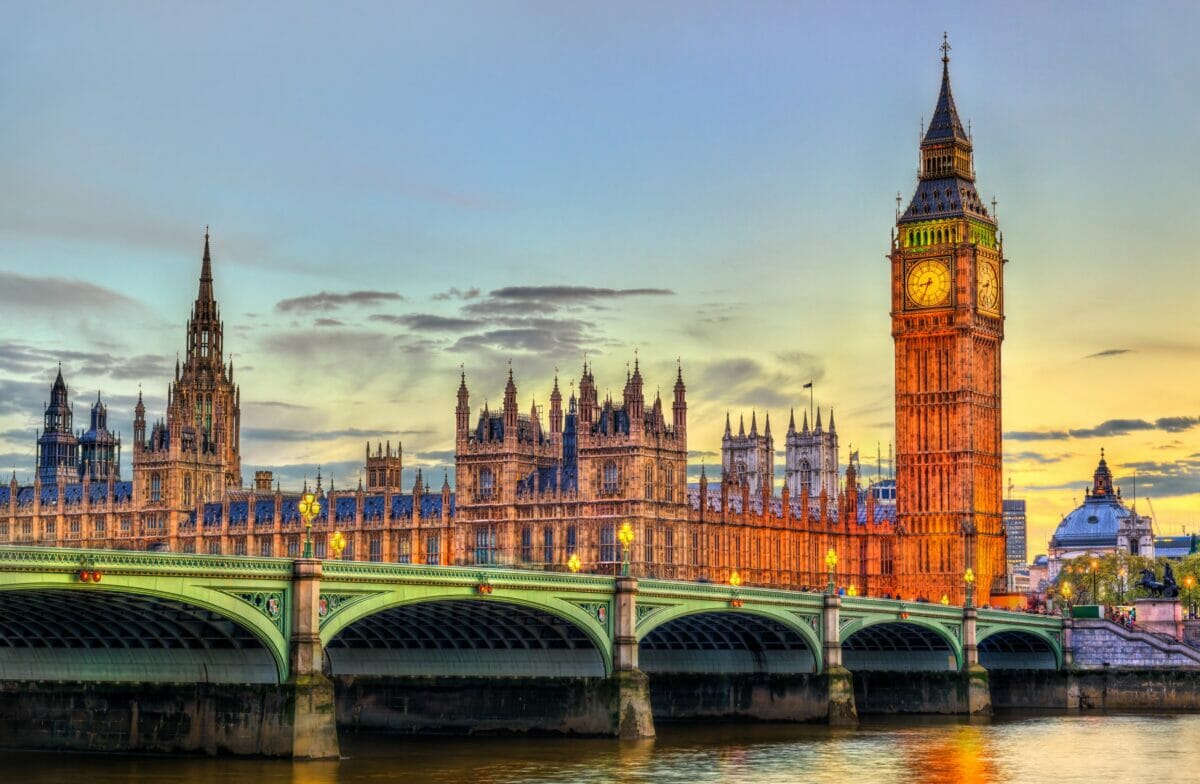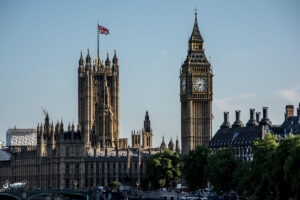As he stood in the rain yesterday afternoon, Prime Minister Sunak surprised many by announcing he was ‘going early’, declaring that the date for the UK general election will be Thursday, 4th July. A bit of a gamble it may be for his Tory Party, but what does this mean for advisers?
It seems that yesterday’s positive inflation data might have given impetus for Sunak’s decision. However, with Labour riding high in the polls, there is certainly much for advisers and their teams to consider. And that’s not just in terms of impacts not just of the next six weeks of campaigning, manifesto pledges and political banter ( brace, brace!) but also the consequences of a new government coming into power of whatever colour – and all that entails for financial planning.
Sharing their reactions to the general election date announcement, experts from across the industry have been commenting as follows:
Stuart Ritchie, Managing Partner of GSB Wealth, has shared his initial thoughts with us on several areas of impact for the wealth and investment space as follows:
Investments
Ritchie said: “The polls indicate a significant lead for Labour. Volatility in the stock market around election time is expected, but historical trends show eventual stabilisation.
“However, uncertainty is the stock market’s greatest enemy. Historically, the market tends to thrive when it anticipates a clear winner in an upcoming election. This was evident in 1997, with the market experiencing growth before, during, and after Labour’s widely expected victory.
Economic factors such as inflation and interest rates influence market returns more than election returns.”
Pensions
He said: “Both parties commit to retaining the state pension triple lock, ensuring it rises with the highest of inflation, earnings growth or 2.5%.
“Labour plans to reintroduce the lifetime allowance for pensions, potentially affecting savers with large pension pots. This is adding further complexity to a topic that needs to be simplified.
“Whichever party gets in may accelerate planned increases in the state pension age.”
ISAs
Ritchie added: “Labour aims to simplify the ISA landscape and the proposed UK ISA by the Conservatives is criticised as complex and unlikely to achieve its intended goal.”
Tax
He said: “Britian’s tax burden is the highest since World War Two.
“Debate surrounds the tax burden, with the Conservatives aiming to reduce social security contributions while Labour proposes VAT on private school fees and taxation of overseas income.”
Non-Dom
“The Labour Party first proposed to abolish the non-domiciled tax status, a system allowing wealthy foreigners living in the UK to avoid paying taxes on overseas income and gains.
“However, the government announced plans to end non-dom tax status in the Spring Budget 2024, requiring non-doms to pay taxes after four years. Labour supports this move but intends to further close inheritance tax loopholes for non-doms, emphasizing the importance of tax fairness and discouraging tax evasion.
“But the Finance (No 2) Bill was scrutinised by the Public Bills Committee on 21 May, and it was anticipated it would pass that committee by 24 May. It then has to go to the report stage and 3rd reading in the House of Commons, before heading to the House of Lords to be voted on. However, due to the announcement of the election, UK Parliament is now likely to be dissolved by 30 May.
“That means that anything controversial within the Budget that could get ‘stuck’ in the House of Lords may now end up getting removed from the Bill to ensure that the necessities of the Bill become statute before Parliament rises. It will then be for the new Government to re-introduce the legislation (if they so choose) in a new Finance (No 3) Bill.”
Royal London Asset Management’s head of multi asset Trevor Greetham says context is everything as he comments:
“2024 is delivering on its promise to be a big year in global politics with Rishi Sunak calling a UK General Election for 4 July, in a slightly surreal Downing Street announcement in the pouring rain against the distant strains of D:Ream’s 1997 anthem ‘Things Can Only Get Better’.
“In some ways things are getting better in the UK. We’ve just seen both the best quarter-on-quarter GDP and the lowest year-on-year inflation in almost three years. Context is everything, though. In real terms, GDP is still only 1.5% above its pre-pandemic, pre-Brexit level (see chart). Meanwhile, the price level for consumer goods is a whopping 23% higher. And while investors were at one point expecting at least six rate cuts from the Bank of England this year, inflation has been slow to fall and they now put only a 1 in 10 chance on a first rate cut in June.
“Against this backdrop, and absent major surprises, we don’t expect the UK election to be a market moving event. The opinion polls are strongly skewed towards a victory for Keir Starmer’s Labour. Moreover, macro-economic policy differences are far smaller than they were in 2019 when Boris Johnson squared up against Jeremy Corbyn. This time both parties are pledging to stick to fiscal rules and to stay outside the EU Single Market. Either party would inherit severely strained public finances, limiting their room for manoeuvre.
“November’s election in the US is a different matter altogether. The polls are close enough for either Biden or Trump to win the Presidency and there are major geopolitical forces hanging on the outcome – not least the war in Ukraine and the degree to which China feels emboldened to act against Taiwan, after their January 2024 election saw victory for the pro-independence party.“
John Leiper, CIO at Titan Asset Management said: “UK in the out-of/no recession category, and the day inflation falls to 2.3% we see the UK Tory party announce their decision to go to the polls. Coincidence? I don’t think so. With one more print between now and vote day, and increasing odds inflation falls further to the fabled 2% number, Rishi has done all he can to increase his odds at the upcoming election. To quote James Carville, “it’s the economy stupid”. We continue to watch developments closely alongside potential implications for the UK economy and markets. “
Susannah Streeter, head of money and markets, Hargreaves Lansdown reminds us that the UK – and any new incoming government – faces many economic challenges as she comments:
‘’Although some of the more severe headwinds have eased, the Conservatives will go into this election facing an electorate still struggling with the cost-of-living. Inflation has come down towards target, but it has disappointingly missed forecasts, which means prospects for an interest rate cut have been pushed further into the distance. House prices have started creeping up again, amid supply shortages in key parts of the country, which means that getting onto the ladder is still unaffordable for many young people. This is while others face the daunting prospect of remortgaging on much higher rates and tenants are watching rents climb at super painful rates. Growth forecasts have been upgraded for the UK this year by the IMF this week, from 0.5 to 0.7%, but it’s hardly shooting the lights out.
“The Chancellor has pledged to cut personal taxes further, with more tinkering to National Insurance looking likely, to try and stimulate growth. The latest public sector borrowing snapshot arguably offers the government even less wiggle room to bestow treats on voters. Borrowing in April totalled £20.5 billion, above the forecast of the Office for Budget Responsibility and overall borrowing for the year was revised upwards. It seems further tax cuts would come at the expense of public services. Already current government spending plans would involve a large cut to departmental budgets over the rest of the decade, according to the IFS, to meet the government’s own fiscal rules.
“With the NHS grappling with impossible waiting lists, the numbers of long-term sick have been climbing. This reduces the pools of available labour to help kick start productivity and potentially keeps wages higher, weighing on company costs, all of which is set to constrain economic growth.
“Until we see the detail in the manifestos it’s difficult to analyse specific effects on sectors of the economy. There are some broadbrush indications in Labour’s pledges which may weigh on or benefit certain industries. Labour’s determination to be seen as economically credible may limit its ability to make immediate inroads into fulfilling its other central pledge of saving the NHS. Kier Starmer has vowed to abide by tough spending rules to be seen as responsible with the country’s financial health. But at the same time, there is a plan to cut NHS waiting times and deliver 40,000 more appointments by paying staff overtime. It’s far from clear whether cracking down on tax avoidance and non-doms will provide the budget needed for this.
“The pledge to kickstart the building of 1.5 million new homes by shaking up the planning system and fast-tracking urban brownfield sites for development would benefit the housebuilders who have had to deal with weaker demand in an era of high interest rates and slow approvals of new sites. However, it remains to be seen just how quickly this streamlining of the planning system will take effect.
“Labour intends to set up Great British Energy, a publicly owned clean power firm, with the running costs to be paid through increasing the windfall tax on oil and gas company profits from the North Sea. This would mean the current Energy Profits levy, would increase from 75% to 78%. However, it’s not clear exactly how much would be raised due to the volatility of oil and gas prices. A levy specifically on oil and gas in the North Sea is also likely to affect smaller companies rather than larger energy giants, given that they have less capacity to absorb tax changes, and it may lead to fewer contracts being clinched in the supply chain because of this. Labour also intends to draw new licensing rounds to a close, limiting future revenues streams for companies already operating on the UK’s continental shelf.
“Labour’s promise to spend £28 billion on a green push was diluted, but the party is still planning to significantly increase investment to ensure net zero targets are within reach. This would include retrofitting more homes with insulation, which is likely to benefit companies selling insulation products but also energy companies, large and smaller who have been winning contracts to make improvements to ensure homes are warmer.
“A tougher stance towards water companies which pollute rivers and seas, is also likely to weigh further on the utilities sector. It plans to give the regulator more power to increase fines and force firms to strip executives of bonuses. Already the cost of repairs to leaky and inefficient infrastructure is a heavy future burden, and with the risk of fines becoming more severe, it’s likely to make the UK water utilities sector even less attractive.
“Given the pledges already made by the Labour government, there is likely to be a significant shake up of the public transport sector. There are plans to allow more councils to run bus franchises, and Labour has also announced a readiness to renationalise the country’s rail network by not renewing contracts with private operators. This is set to affect companies like First Group, which runs services in the West of England, commuter services in London and an Edinburgh to London route. Mobico also runs bus services in the West Midlands, and so could also potentially be hit by increased competition. However, with other train companies already taken into state control, further renationalisation would not come as a big surprise, so is unlikely to move the dial extensively in terms of share prices.
“The headline of Labour’s campaign will be the pledge to save the NHS with public concern about health services so high. The hardest part may well be delivering in office. Especially in the short-term considering the myriad of issues the NHS faces, such as funding, the ageing population, workforce issues and its complex inter-relationship with other policy issues such as social care. Labour may well be able to build confidence in its agenda for government by setting out a clear long-term plan early – but need to take the public with them, especially with trust in politics generally in short supply.”
John Phillips, CEO of Spicerhaart and Just Mortgages, said: “While the Prime Minister and his government are clearly using the positive news on inflation as their moment to move, it still feels somewhat like turkeys voting for Christmas – especially if polling figures and general sentiment is anything to go by.
“Nevertheless, now we finally have a date, it will be interesting to see how the main parties ramp up their campaigns – and how housing and mortgages will fit into their plans. This is especially true for Labour and Kier Starmer who set out their ‘first six steps’, which did not include a plan for housing.
“Both play a critical role in the wider economy and remain carefully balanced amid improving consumer confidence. While market conditions have improved, it’s still far from plain sailing for many borrowers. We certainly need to see some concrete plans on how they plan to answer the clear affordability challenges that remain in the market, as well as the persistent undersupply of housing. An action plan is also needed to encourage landlords to remain in the market to support the millions of households that rely on the private rental sector.
“With real pressures on affordability, it would be fantastic to see a return of scheme such as Help to Buy or something similar that includes second-hand homes. Given that it is proving to be the main way buyers are getting onto the property ladder in the current climate, it would be great to see more support given to the likes of Shared Ownership and other low deposit schemes.”
Lily Megson, Policy Director at My Pension Expert said, “The race begins. The Prime Minister’s rainy day general election announcement is a pivotal moment for savers. As parties begin finalising their manifestos, it is crucial they understand the need for clear and robust policies that address the pressing issues facing households brought on by the cost-of-living crisis.
“In his speech, Rishi Sunak stated that whoever takes on the coming period of economic stability will need ‘a clear plan and bold action’. As households struggle to keep up with soaring prices, it’s unclear what economic stability he was referring to. However, when it comes to pensions policy, he is certainly right about the need for a clear plan and bold action.
“I urge all parties to now put forward comprehensive and transparent policies that will help us move beyond the economic instability of recent years. These policies should safeguard the financial futures of the UK’s retirement planners while putting improvements to financial education and literacy and access to financial advice at the forefront.”
Nathan Emerson, CEO of Propertymark comments:
“Housing is the cornerstone for every single community across the UK. It’s the foundation to a strong economy, and must be a key theme that all political parties are placing front and centre of their general election campaigns.
“Many successive governments have failed to keep pace with demand, and we would encourage potential policy makers from all sides to place a rejuvenated emphasis on tackling current issues and meeting future demand.
“There must be a sustainable mix of housing solutions for both buyers and renters, as well as a commitment to ensuring the UK leads regarding, innovation, quality, and environmental sustainability. In addition, any new government must ensure there is comprehensive support in place for first time buyers to prevent the prospect of home ownership being out of reach, but equally ensure the housing market remains balanced for all. It is also important there is a full scale commitment to ensure wider infrastructure is also planned for, as we witness an ever growing population.”
















